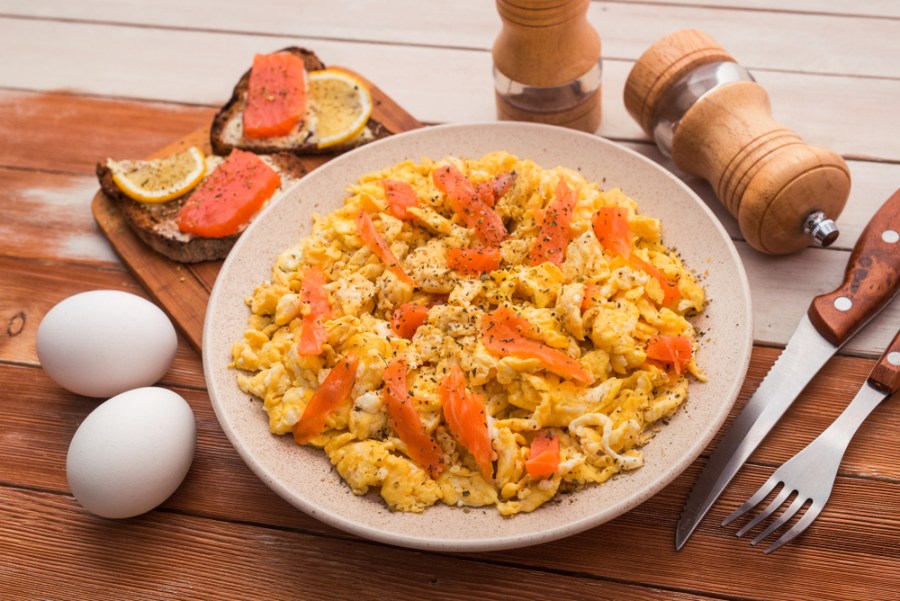It’s not just what we eat that affects our mood – when we tuck into meals can make a difference, too. If your days tend to be an emotional roller coaster, you find yourself feeling anxious or irritable, or you want to feel happier overall, these simple tips from nutritionist Jane Clarke can help.
Always start the day with breakfast
Studies have shown that eating soon after we wake can help to balance our blood sugar and hormone levels to give us vitality and mental focus for the day ahead. I recommend having protein at breakfast – poached eggs, full-fat Greek yoghurt with fruit, or a bowl of porridge with nuts and seeds (the combination of slow-release energy from the oats and protein from the topping is a winner). If you’re on the go or you’re someone who can’t face a bigger meal at the start of the day, one of my Nourish Drinks (prices start from £15.80 for a pack of four drinks, order online) made with all-natural and organic ingredients, is a good option, as they’re nutritionally balanced to contain all the carbs, protein, vitamins and minerals you need for a complete meal replacement.
Knowing you’ve started the day by eating well will help you to feel in control, so you’re more inclined to keep up the good work throughout the day.
Eat the right kind of carbohydrates
Complex carbohydrates such as sweet potatoes, porridge oats and whole grains are processed by the body more slowly than their refined counterparts such as white bread and pasta, and the effect is enhanced if you eat them with some protein such as fish, eggs or nuts. It means they release their energy more slowly, so you won’t get a classic high followed by a crash that makes you feel sluggish and irritable.
Carbohydrates also trigger a response in the body that ultimately leads to the production of the feelgood chemical serotonin in the brain. This soothing effect can be felt around 30 minutes after eating a carbohydrate-rich meal.
Eat more tryptophan-rich foods
If low mood or anxiety is a problem, you may find some relief by increasing the amount of tryptophan-rich foods in your diet – as tryptophan is used by the brain to produce the ‘happy hormone’ serotonin. Chicken, turkey, eggs, salmon, tuna, beans, lentils, dark green leafy vegetables, nuts and seeds. Oh, and chocolate! As well as tryptophan, chocolate also contains theobromine, which is proven to boost mood and also relaxes muscles, creating a calming effect.
Stay hydrated
You may not associate how much water you drink with your mood, but dehydration can make you feel short-tempered and irritable. Keep a flask or bottle of water beside you and keep sipping throughout the day. Aim to have 2.5 litres a day, and more if it’s very hot or you are exercising.
Cut back on caffeine
I never miss my morning coffee, but I find that drinking caffeine after lunch can make me feel twitchy and anxious – and it certainly doesn’t help me to sleep later on. If you’re sensitive to caffeine, you may find switching to a fruit or herbal infusion after 4 pm can keep you on an even keel. Calming teas include chamomile, bergamot and lemon balm. Before bed, switch to more traditionally sedative brews, such as blue vervain, valerian and hops. Milky drinks, whether that’s a glass of fresh milk or one of my Nourish Drinks, or a lavender infusion, are also fantastically soporific, not least because they can remind us of our treasured childhood wind-down routine.







